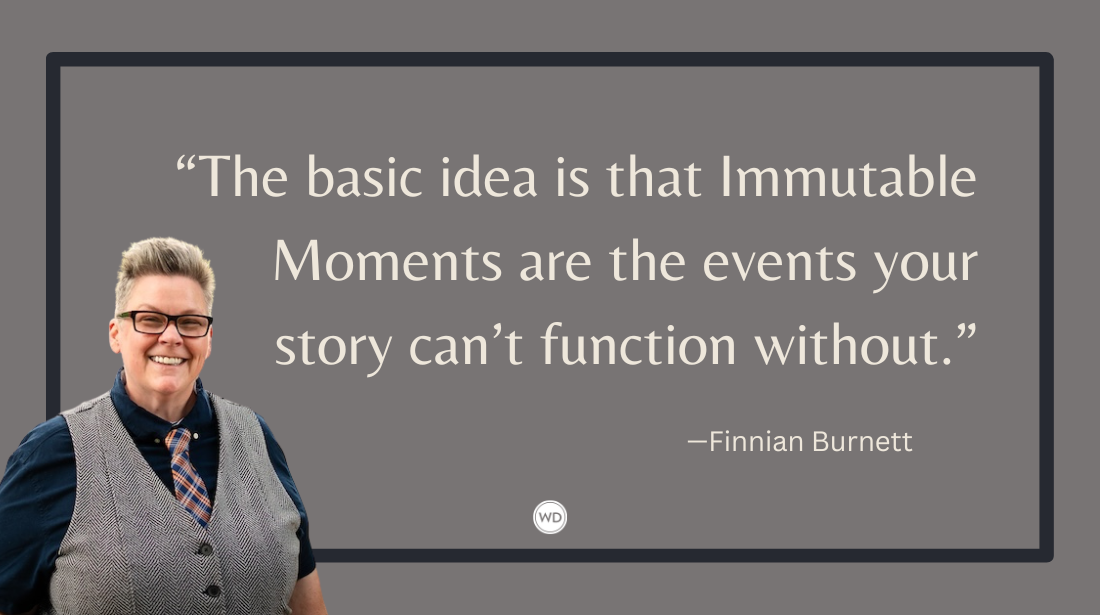3 Tips for Addressing Serious Topics in Romance Novels
USA Today bestselling author Michelle Major shares 3 tips for tackling serious topics in romance novels that can apply to all genre of writing.
No matter what type of story you’re writing, your characters will have to deal with difficult situations at some point or another. That gives the story conflict. And with contemporary fiction, often those challenges are based on real-life struggles. Even when the romantic journey is central to the plot of the book, serious topics can allow you to go deeper with the hero and heroine character journey and help readers become more invested in turning the pages.
In my latest release, The Wish List, the Carlyle sisters (Beth, Freya, and Trinity) are all dealing with difficult circumstances as the book opens. They come together in the aftermath of their estranged mother’s stroke just before Christmas. Beth has just discovered that her ex-husband is marrying his pregnant girlfriend. Part of what caused the demise of their marriage was Beth’s feelings of grief and inadequacy over her multiple miscarriages. Freya has probably the worst relationship with her mom after making a series of rebellious choices that have basically torpedoed her life. And Trinity is pregnant and running from an abusive ex.
Although I believe in the power of a happily-ever-after and a hopeful story with lots of humor and sweetness, readers also need to feel like they can relate to the struggles the characters go through. Many people deal with stress, trauma, and difficulties in their lives, and how we as authors take our characters on those journeys can create a story that will stay with readers long after they read the final word.
Here are three tips to help you balance serious topics in a story with a central romance or a lighthearted overarching tone.
1. Know Your Characters
Authentic emotions are essential so that characters can react to trauma and stress from a place of integrity. One aspect of characterization is developing backstory but choosing wisely how to reveal it. Sometimes teasing out details through dialogue or internal thoughts in serious moments can add more to a story than pages of exposition.
Would your heroine react to a challenge with a joke or a hug? Often the people in a character’s early life and the experiences they’ve had will mold them into who they are. There are many ways to develop a character’s personality, from interviews to using the Enneagram to flesh out details. How they dress and their mannerisms when faced with stress can be used to add additional insight into your hero or heroine’s mindset.
Get to know your characters and they will enhance the serious aspects of the story and pull readers into the world you’ve created.
IndieBound | Bookshop | Amazon
[WD uses affiliate links.]
2. The Need for Research
As writers, I think we all understand the importance of research. Our world is so connected that it’s more imperative than ever that we understand how things truly work. We often have to step outside of our own experiences to create stories.
When dealing with serious topics, it’s important to honor the subject while balancing the role a situation has in the bigger picture of the book. Eight years ago, my own mother-in-law suffered a debilitating stroke that changed her life—and it changed the lives of everyone in her life. And while our family’s experience gave me additional insight into one way a journey of recovery can unfold, it was important to do additional research on the types of strokes and the stages of rehabilitation.
Each experience we write is unique and can add depth to a story—thorough research is much like a backstory for a character. It should inform your writing without overtaking it.
3. Hope Through Healing
And not just healing but also humor. One of the hallmarks of the romance genre is the promise of the story ending in a happily-ever-after (or happy-for-now). So, it’s critical to balance the serious plot points or story beats with a bit of levity.
A challenging situation can create conflict or deepen the emotional resonance of a character’s journey, but when readers are looking for an escape or relief from their own issues in the pages of a book, it’s important that we give them the satisfaction of an optimistic resolution. Our characters are on a journey where they grow and transform, so adding a bit of lighthearted fun helps with the pacing and gives readers that carrot to know they are building to a conclusion that will leave them with a happy heart.
In the following excerpt from The Wish List, the sisters are at an ultrasound appointment for Trinity and they discover something that—for a woman running from an abusive ex—seems to be more than she can handle. But the gravity of the emotional moment for her also leads to a new level of closeness with her sisters.
“I want to have a girl baby.”
“Yeah.” Freya came to stand next to Beth. “I think we are all clear on that, sweetheart.”
“Why?” Beth asked.
There was something in her tone that made Trinity realize Beth had already guessed the answer. She forced herself to look at her sisters. They knew. They both knew. Her most shameful secret wasn’t a secret to two of the people who mattered most in the world to her.
“I left him. I want you to know that. As soon as I found out I was pregnant, I left. He doesn’t even know about the baby.”
“How long were you with him?” Beth asked gently.
“How many times did he hit you?” Freya demanded. “Because that’s how many times I’m going to kill him. Over and over again.”
“It was only once that he actually put a hand on me,” Trinity told them.
“He hit you,” Beth said through clenched teeth. “You’re sure it was only once?”
“Maybe twice, but it wasn’t a lot. I promise.”
“There are other ways to abuse people than physically,” Freya said.
Trinity told herself that she was not going to break down. She was going to be strong in front of her sisters. “Yes,” she agreed. “He wasn’t kind.”
“I’m guessing that’s an understatement,” Freya muttered.
They heard voices outside the door.
“We can discuss this in more detail later.” Beth studied her. “He doesn’t know about the baby. Does he know where you went?”
Trinity looked away. “I didn’t want him to follow me.”
“And you’re sure he didn’t realize you were pregnant?”
“I’m sure.”
“We’re going to take care of you, Trin,” Beth told her. “We will figure this out, which includes you having a boy.”
Freya nodded. “We are going to raise the best man the world has ever seen. There’s a girl out there—maybe she hasn’t even been born yet, maybe she isn’t even a twinkle in her mother’s eye, but she’s going to thank you someday. Or maybe there’s another boy out there who will thank you. Who knows? But what I do know is he’s not going to turn into your ex-boyfriend.”
Trinity sucked in a shaky breath. “That’s what I’m afraid of. What if my baby takes after his father?”
“Nope.” Freya held up her hand. “We’re not even going to honor that scumbag by calling him a father. We can refer to him as the blessed sperm donor.”
Beth’s eyes gleamed as she met Trinity’s gaze. “I don’t care if I was raised in the South, I won’t even bless that jerk’s heart.”
Trinity smiled and the heavy weight that had been sitting on her chest felt a touch lighter. “I wouldn’t bless his heart if he was the last man on earth.”
The world can be a serious, scary place, but I hope you have some new ideas for how to balance those emotional ups and downs to make even a lighthearted moment resonate with your readers.
USA Today bestselling author Michelle Major loves stories of new beginnings, second chances, and always a happily ever after. An avid hiker and avoider of housework, she lives in the shadow of the Rocky Mountains with her husband, two teenagers, and a menagerie of spoiled furbabies. Connect with her at MichelleMajor.com.








